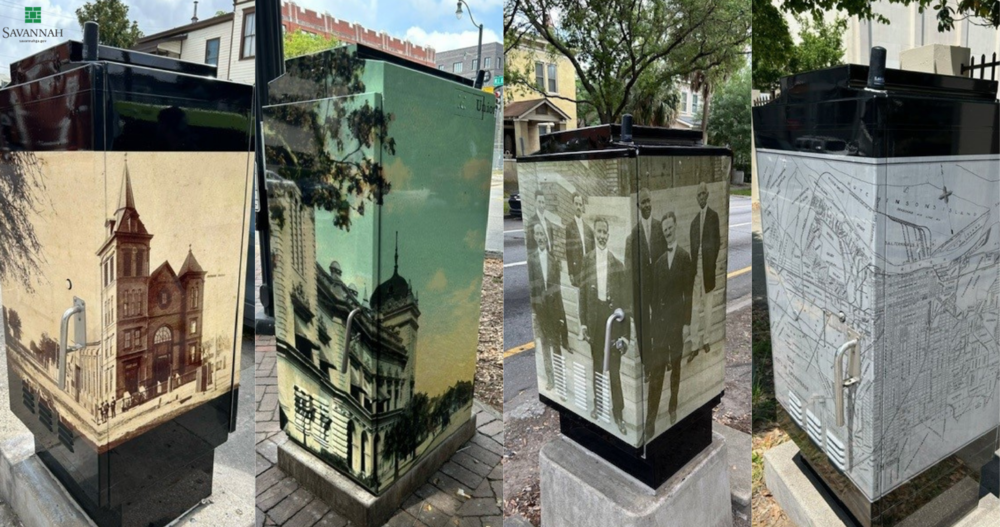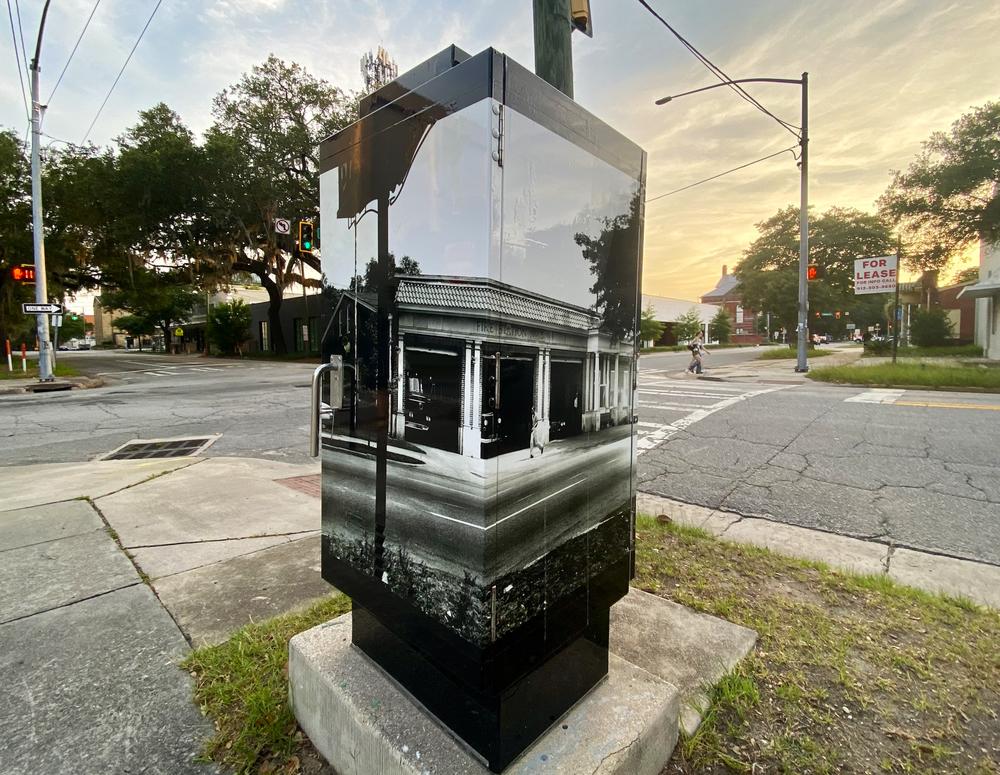
Caption
From left to right, traffic cabinet wraps display Duffy Street Baptist Church, Union Station, Carnegie Library board members circa 1914, and a 1910 map of Savannah.
Credit: City of Savannah
LISTEN: Two dozen custom-designed vinyl laminate wraps are meant to deter graffiti and showcase the city's visual history. GPB's Benjamin Payne reports.

From left to right, traffic cabinet wraps display Duffy Street Baptist Church, Union Station, Carnegie Library board members circa 1914, and a 1910 map of Savannah.
Savannah officials have rolled out a new beautification campaign to cut down on graffiti at busy downtown intersections, while simultaneously beautifying city streets with a blast from the past.
It's not usual for Savannah's transportation crews to collaborate with the city's municipal archivists, but the two departments have collaborated to wrap 16 traffic utility boxes with graffiti-resistant vinyl laminates, each bearing a historical image unique to that specific location.
Traffic utility boxes — also known as traffic cabinets — are metal enclosures within which electronic components for traffic light systems are securely stored.
On the outside, though, these enclosures often attract graffiti taggers who, according to Savannah transportation department director Steve Henry, not only deface public infrastructure but also jeopardize road safety because spray paint, markers, stickers and other materials absorb heat, which can then transfer inside the cabinet and damage its electronics.
“It really became a maintenance issue — very time-consuming and at times costly to clean these cabinets,” he said. “And these cabinets are in some areas very visible to visitors as well as our residents.”
To address the problem, the city ran a pilot program with Clean Slate Group, a Montana-based company specializing in visually appealing vinyl laminate wraps coated with easy-to-clean film barriers.
After Henry deemed the pilot program a success — as the two demo wraps were each tagged with graffiti only once (and then easily cleaned) in the span of two years — the city added 14 more wraps, with another eight currently in the works and even more expected by summer's end.
The initial two dozen intersections chosen for the program were decided based on which traffic cabinets drew the most maintenance calls for graffiti removal. The vast majority (19 of 24) are located in either the downtown Historic District or the Victorian District near Forsyth Park.

A 1965 photo of a Savannah fire station is shown on the traffic cabinet wrap at the corner of Bull Street and Henry Street.
Savannah municipal archives director Luciana Spracher called the traffic cabinet wrap program a “win-win to address the graffiti issues, but also to address the city's initiatives to support community history,” adding that “it was a lot of fun to tie those locations to images that were specific to those areas.”
For example, at the intersection of Henry Street and Price Street just west of Savannah's Carnegie Library, a traffic cabinet now sports a circa-1914 photo of the library's board members standing on the steps of the building, which served Black residents at a time when Savannah's other public libraries excluded African Americans.
Other wraps throughout Savannah depict the iconic Forsyth Park fountain circa 1902, Union Station around that same time period, the Victorian District during the 1980s, and maps of the city from both 1820 and 1910, among several other images of vintage landmarks and streetscapes.
“It's a great opportunity for us, one, to showcase the collections of the municipal archives, which we are preserving and protecting for our residents,” Spracher said. “But also to bring in the unique history of the different locations to help support a sense of pride in your neighborhood.”